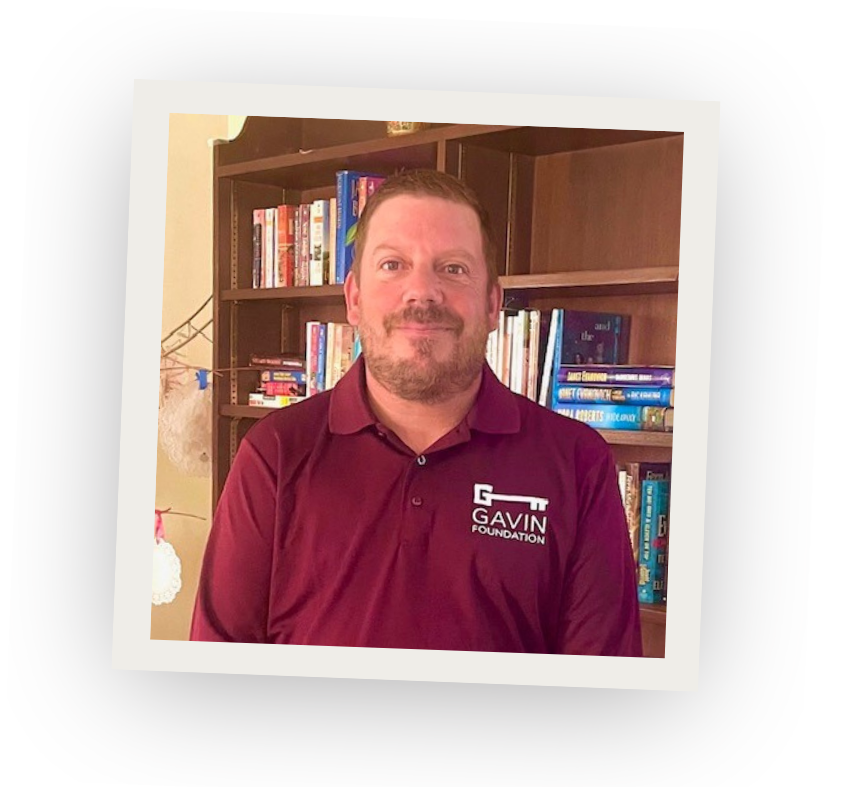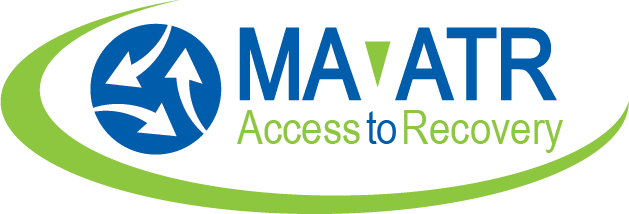Ryan Whitcomb describes himself as “the least anonymous person” in Alcoholics Anonymous (AA). After working in EMS for 18 years, his substance use disorder (SUD) brought him to the Gavin Foundation where he sought treatment. Ryan found community and connection, beginning a life in recovery almost 5 years ago. We wanted to talk to him about what being a Recovery Coach looks like and how we can learn to better support individuals in recovery.

Thanks for talking with us, Ryan! Let’s jump right in. As a Recovery Coach, what is your role in an individual’s recovery?
My role is to remove barriers and connect participants with recovery options of their choosing. Every participant has different needs and we really want to provide that wraparound support because, many times, this is not their first time. My job is to keep up with them, help them understand their triggers, and talk to them as they are going through recovery. I will even drive them to or from meetings, whether that’s AA, NA, or another support group. I check in with participants and try to talk to them at least once a week and meet face to face once a week. We’re not their sponsor, we’re not their therapist. We are just someone who has been there; I’ve been through it.
When you work with a client, how do you provide them with support?
We meet individuals where they are at and it’s important that we try to understand their story. The most important part to me is providing that one-on-one support with a participant. We will create a budget plan with them, help them find a primary care doctor, a therapist, and discuss their goals. There are individuals that still have family they are involved with, or children, and we want to make sure to keep that going. If they need help navigating the justice system or getting their kids back, that’s really important to a lot of our clients. We find out what they need and provide resources.
What is a common topic you work on with your clients?
First, we work on a relapse (or recurrence) prevention plan. This includes staying away from high-risk situations and knowing their personal warning signs or triggers. Anything that may have caused a relapse in the past, we want to avoid those things or places to prevent one in the future. We make a list of people or groups they can reach out to if they ever need urgent help or support, and we work on coping skills to help them as they go.
We also want to make sure they have a social life. Life doesn’t end when you’re sober. I remember when everything I did, I had to do with alcohol, and the first year and a half [of recovery] wasn’t fun for me. I like to work with participants and get them connected to other sober networks, sober communities, sober softball, and get them engaged with likeminded people. My office is at a recovery center where it is a safe place to come; we hold their eyes up to the whole world out there.
There is a lot of stigma around substance use and recovery in our society. What is one thing you want people to understand about recovery that might ease some of that stigma?
We are not bad people; we are sick people. Addiction can affect anyone. People look down on the people they see on the street drinking out of a paper bag, but there are also people in their houses, hiding it from their wives and husbands. This is a disease.
What would you say to the person who looks down on people with a SUD or in recovery?
Instead of looking down on them, lift them up. You never know what someone is going through. That one conversation, that one act of kindness could change someone’s life. It happened to me earlier today. A guy got kicked out of a liquor store, so I start talking to him, tell him where I work, gave him my number, told him my office is right around the corner and to come see me. He might come by – you’d be surprised! Instead of walking by with my head down, stop and talk to someone. People just need help.
What keeps you motivated to do this work?
I worked in EMS for 18 years; it’s always been about helping people. Now, it’s just a different angle of helping people. In the ambulance, it was helping in an emergency. The Gavin Foundation is where I went for treatment and 5 years later, I’m working for them. It’s full circle. I wouldn’t go anywhere; I love what I do. When someone finishes their six months in a sober home, it is a complete 180o. It’s more than the pay. Seeing participants get back to their families? It’s amazing, for both me and the participant.
September is National Recovery Month. How do you hope to see the community advocate for individuals in recovery?
Tell them they are not alone. Addiction can affect anyone. There is support for people in recovery, the key is being able to ask for help.
